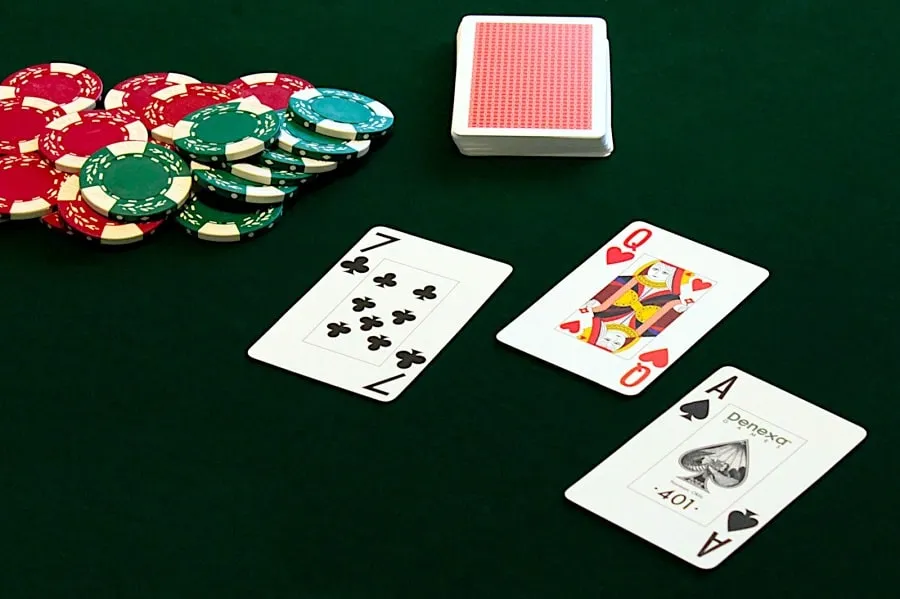Engaging in a game of Poker can serve as a refreshing escape from the rigors of daily life, offering a chance to unwind and sharpen your focus. However, to truly reap the benefits of Poker as a recreational activity, it's essential to approach the game with the right mindset and strategies. By incorporating the following practices with wintips, you can elevate your Poker experience and enjoy a sense of relaxation and enhanced concentration.
Registration Guide and Promotion: Before delving into the world of Poker, it's important to find a reputable online platform where you can play with confidence. Registering with a trusted bookmaker in betting not only ensures a secure gaming environment but also opens the door to exciting promotions and bonuses. Look for platforms that offer enticing sign-up bonuses, free tournament entries, and loyalty rewards to maximize your gaming experience.
Relaxation and Emotional Release in Poker: Writing down your thoughts and observations during a Poker session can be incredibly beneficial for your overall gameplay. Instead of focusing solely on advanced Poker strategies, take the time to jot down everything you remember after each game. This could include reflections on poorly played hands, observations of opponent behavior, moments of strategic brilliance, and instances of distraction.
Taking notes can help alleviate the emotional rollercoaster often associated with Poker, such as the thrill of a big win or the fear of making a costly mistake. Reviewing these insights will guide you toward improving both your strategic and psychological approach to the game, ultimately making it easier to relax and enjoy your downtime.

Improving Gameplay with Note-Taking: Reviewing your notes can provide valuable insights that lead to better decision-making during gameplay. When you articulate your thoughts in a clear and sober state, you're more likely to make informed decisions at the table. Before starting a Poker session, take a moment to revisit previous conclusions you've written down. This will help you focus on the psychological and strategic aspects of the game before, during, and after each round.
A tip for long-term Poker players is to consider brief note-taking during breaks. Even if you don't have much time to rest, jotting down a few thoughts for a minute or two can yield significant benefits. This practice will help you recharge more effectively for the next day's competition.
Taking Breaks for Optimal Gameplay: Allowing yourself to take breaks while playing Poker enables you to absorb information and replenish expended energy. If you engage in frequent Poker sessions without adequate rest, consider minimizing other mentally taxing activities.
Avoiding the Pitfalls of Poker Burnout:
The allure of Poker can be irresistible, drawing players into a world of intense competition and endless possibilities. However, this same allure can also lead to burnout if not managed effectively. Many Poker enthusiasts find themselves caught in a cycle of relentless pursuit, constantly seeking to improve their skills and stay ahead of the curve. In this quest for mastery, they often neglect the importance of relaxation and self-care, inadvertently sabotaging their own enjoyment of the game.
Recognizing the Signs of Poker Burnout:
One of the first steps in developing an optimal relaxation strategy is recognizing the signs of burnout. Common indicators include feelings of fatigue, irritability, and diminished enthusiasm for the game. If you find yourself dreading Poker sessions or experiencing a decline in performance, it may be a sign that you need to reassess your approach.
Balancing Intensity with Rest:
While it's natural to be passionate about Poker, it's essential to balance intensity with periods of rest and rejuvenation. Constantly immersing yourself in the game without allowing for breaks can lead to mental and emotional exhaustion. Instead, aim for a healthy balance between focused practice and downtime to prevent burnout and maintain a sustainable level of enthusiasm.
Exploring Relaxation Techniques:
Finding effective relaxation techniques can vary from person to person, so it's essential to explore different options and discover what works best for you. Some players may find solace in meditation, yoga, or deep breathing exercises to calm their minds and relieve stress. Others may prefer physical activities such as walking, jogging, or spending time outdoors to clear their heads and recharge their batteries.
Setting Boundaries and Prioritizing Self-Care:
In addition to finding relaxation techniques that work for you, it's crucial to set boundaries and prioritize self-care in your Poker routine. This may involve establishing dedicated Poker-free hours or days, where you can focus on other interests and activities that bring you joy. By nurturing your overall well-being and maintaining a healthy work-life balance, you'll be better equipped to approach Poker with a fresh perspective and renewed enthusiasm.
Embracing the Journey:
Ultimately, developing an optimal relaxation strategy is about embracing the journey and enjoying the process of growth and self-discovery. Rather than viewing relaxation as a luxury or an afterthought, see it as an essential component of your Poker practice. By investing in your well-being and taking proactive steps to prevent burnout, you'll not only enhance your enjoyment of the game but also set yourself up for long-term success and fulfillment in Poker and beyond with online bookmaker uk.
Conclusion: Incorporating relaxation techniques and strategic note-taking into your Poker routine can significantly enhance your overall gaming experience. By prioritizing moments of rest, engaging in reflective practices, and honing your emotional management skills, you'll find yourself better equipped to navigate the highs and lows of Poker gameplay. So, take a deep breath, embrace the journey, and enjoy the thrill of the game!








